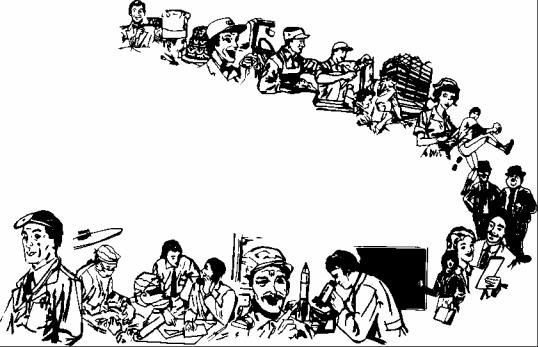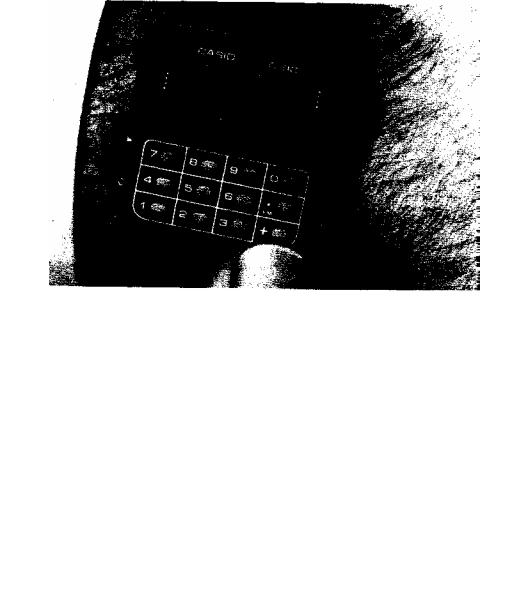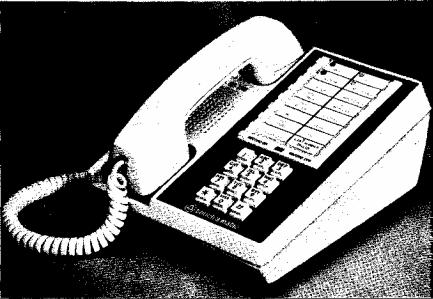
Beyond Language
.pdfWork Values 147
Airline Stewardess:
We had to go to stew [stewardess] school for five weeks. We'd go through a whole week of make-up and poise. I didn't like this. They make you feel like you've never been out in public. They showed you how to smoke a cigarette, when to smoke a cigarette, how to look at a man's eyes. Our teacher, she had this idea we had to be sexy. One day in class she was showing us how to accept a light for a cigarette from a man and never blow it out. When he lights it, just look in his eyes.10
Garbage Man:
I've been outside for seven years and I feel more free. I don't take the job home with me. When I worked in the office, my wife would say, "What was the matter with you last night? You laid there and your fingers were drumming the mattress." That's when I worked in the office. The bookkeeping and everything else, it was starting to play on my nerves. Yeah, I prefer laboring to bookkeeping, for one thing, a bookkeeping job doesn't pay anything. I was the lowest paid man there.11
Policeman:
I make an arrest on someone who commits a crime of violence. I have to resort to a physical type of arrest to subdue him, I might have to shoot the person. I'm chastised for being brutal. It's all right for him to do what he wants to do against myself or legitimate people, but in no way can I touch him. I don't see the justice.12
Dentist:
Dentistry is very precise. No matter what you do, sometimes things just don't go right. One of the big diseases dentists have is stress. It's physically hard because you're in an uncomfortable_bjej3ositic^^
day. With techniques today, young fellows are sitting down. I wish I'd sit down more, but I'm not accustomed to it. So I stand most of my day. . . . The The patients are in a tense positions too. There is stress on both sides. . . . All they have to do is jerk once on you and they've damaged themselves.13
Waitress:
People imagine a waitress couldn't possibly think or have any kind of aspiration other than to serve food. When somebody says to me, "You're great, how come you're just a waitress?" Just a waitress. I'd say, "Why, don't you think you deserve to be served by me?" It's implying that he's
148 Work Values
not worthy, not that I'm not worthy. It makes me irate. I don't feel lowly at all. I myself feel sure I don't want to change the job. I love it.14
Steel Mill Worker:
[My boss] said, "Mike, you're a good worker but you have a bad attitude." My attitude is that I don't get excited about my job. I do my work but I don't say whoopee-doo. the day I get excited about my job is the day I go to a head shrinker [psychiatrist]. How are you gonna get excited about pullin' steel? How are you gonna get excited when you're tired and want to sit down?
It's not just the work. Somebody built the pyramids. Pyramids, Empire State Building—these things just don't happen. There's hard work behind it. I would like to see a building, say, the Empire State, I would like to see on one side of it a foot-wide strip from top to bottom with the name of every bricklayer, the name of every electrician, with all the names. So when a guy walked by, he could take his son and say, "See, that's me over there on the forty-fifth floor. I put the steel beam in." Picasso can point to a painting. What can I point to? A writer can point to a book. Everybody should have something to point to.1S
Follow-up: When you compared your individual lists, what cultural differences and similarities did you discover in worker attitudes?
E. Answer the following questions about your own culture and then dis- Cross- cuss intercultural similarities and differences. Cultural
Questions 1. How does a person decide on a career (e.g., with the help of parents, school counselors)?
2.When do young people begin thinking about finding jobs?
3.What are typical working hours? Do people take work home? How much socializing is there on a job?
4.What obligations do employers and employees have toward each other? Do employees stay on one job for a long time or is there a great deal of job mobility?
5.What benefits do employees have (health, insurance, vacation)?
6.How do people advance on the job? Is advancement based on competency or seniority?
7.What jobs are considered "male" jobs and "female" jobs? Does the sex of an employee affect one's work, status, or salary on the job?
Work Values 149
8.What kind of economy does your country have (e.g., capitalist, socialist, etc.)? How does it affect workers and the nature of occupations?
Cultural Notes
1."Blue-collar worker" is a term referring to manual laborers and skilled and unskilled workers. "White-collar worker" refers to such employees as salespersons, clerks, secretaries, technicians, managers, and "profes sionals" (lawyers, doctors, etc.).
2.A "union" is an organization of wage earners formed for the purpose of protecting the worker with respect to wages and working conditions.
3.Minimum wage refers to the lowest possible amount of money an employer can pay an employee over the age of eighteen. In 1970 mini mum wage was $1.30 per hour; in 1980 it was $3.10.
4.Job advancement and mobility are determined not only by employers. Employees themselves may independently decide to leave their em ployer because of the promise of a better job elsewhere. An employee in the United States is expected to be loyal to the employer while on the job but is free to change jobs whenever he or she wishes to. Scientists, engineers, highly educated professionals, executives, technicians, and managers have particularly high rates of job mobility.
5.In the United States the government recognizes the importance of work as the means for survival. It has established several systems of compensation for people who are unemployed or underemployed. "Social Security" goes to disabled and retired persons. Some retired people also receive a "pension" which is based on how long they worked at one job.
"Welfare," including food stamps, goes to poor people and unemployed immigrants.
6.The average amount of time people have for vacation is generally between two and four weeks per year. Vacation time generally increases with the time an employee has worked in one place.
7.The following is the Duncan Scale which illustrates job prestige in the United States.16 The occupations are ranked in order of prestige from top to bottom.

Physicians
Lawyers and judges
Architects
Aeronautical engineers
Social scientists
Natural scientists
Salaried managers in manufacturing
Authors
Stock and bond salespeople
Teachers, retail store buyers
Insurance agents and brokers
Actors, librarians
Retail-trade managers
Local public administrators
Manufacturing foremen
Athletes, clergymen, bank tellers
150
Work Values 151
Power station operators Sales clerks Nurses Construction foremen
Bill collectors, detectives, dieticians, furriers Plumbers and steam fitters Building managers Plasterers Bus drivers Bakers
Motor vehicle manufacturing operators Automobile mechanics Members of the armed forces Blast furnace operators Waiters and waitresses Farmers
Taxi drivers, charwomen, paperhangers, fishermen Hucksters and peddlers, manufacturing laborers Farm laborers Coal miners, yarn- thread-, and fabric-mill machinery operators
Supplementary Vocabulary and Phrases
occupation |
to earn the bread |
advancement |
to lay off |
income |
to fire |
wages |
to quit |
merit |
to resign |
raise |
to exploit |
benefits |
"bread and butter" |
overtime |
blue-collar worker |
retirement |
white-collar worker |
to apply for a job |
labor unions |
to be qualified for a job |
manual labor |

8 |
TIME |
|
SPACE |
|
|
|
|
|
|
|
|
Time and Space Patterns
Time
Susan Anthony has an eight-to-five job with two 15-minute coffeebreaks, a one-hour lunch, scheduled appointments and weekly deadlines. Every time she enters and leaves her office building she "punches" the clock. Although she is not aware of it, her work day is strongly influenced by her culture's attitudes toward time.
[A] When travelers lack an awareness of how time is regulated in a foreign country, they can expect to feel somewhat disoriented. Since most people take time for granted, the effects of values, customs, and social etiquette on the use of time are seldom examined. A culture that values 5 achievement and progress will discourage people from "wasting" time. Highly efficient business people from these cultures may feel frustrated in a country where work proceeds at a slow pace. In religious societies, customs specify times of the day, week, or year for prayer and religious celebrations. If an individual tries to make an appointment during a sacred 10 holiday, he or she could unknowingly offend a religious person. Social etiquette determines appropriate times for visits, meetings, and even phone calls. Arriving two hours late for an appointment may be acceptable in one culture, whereas in another, keeping someone waiting fifteen minutes may be considered rude.
Promptness
[B] Promptness is important in American business, academic, and social settings. The importance of punctuality is taught to young children in school. Tardy slips and the use of bells signal to the child that punctuality and time itself are to be respected. An amusing report of a school-5 child's experience with time appeared in a recent newspaper article:
153

154 Time and Space Patterns
As a child, my mother used to tell me how crucial it was to be at school when the first bell rang. Preparation for my "on-time" appearance began the night before. I was directed to go to bed early so I could wake up wide-eyed at 7 A.M. with enough time to get ready. Although I usually managed to watch my share of TV cartoons, I knew that in one hour I had to get dressed, eat breakfast, brush my teeth, comb my hair, and be on my way to school or I would be violating an important rule of Mom's, the school's, or of the world's. It was hard to tell which.1
[C] People who keep appointments are considered dependable. If people are late to job interviews, appointments, or classes, they are often viewed as unreliable and irresponsible. In the business world, "time is money" and companies may fine their executives for tardiness to business 5 meetings. Of course, it is not always possible to be punctual. Social and business etiquette also provides rules for late arrivals. Calling on the telephone if one is going to be more than a few minutes late for scheduled appointments is considered polite and is often expected. Keeping a date or a friend waiting beyond ten to twenty minutes is considered rude. On
10 the other hand, arriving thirty minutes late to some parties is acceptable.
[D] Respecting deadlines is also important in academic and professional circles. It is expected that deadlines for class assignments or business reports will be met. Students who hand in assignments late may be surprised to find that the professor will lower their grades or even refuse

Time and Space Patterns 155
to grade their work. Whether it is a question of arriving on time or of meeting a deadline, people are culturally conditioned to regulate time.
Division of Time
[E]Time is tangible; one can "gain time," "spend time," "waste time," "save time," or even "kill time"!2 Common questions in American English reveal this concrete quality as though time were a possession. "Do you have any time?", "Can you get some time for this?", "How much 5 free time do you have?" The treatment of time as a possession influences the way time is carefully divided.
[F]Generally, Americans are taught to do one thing at a time and may be uncomfortable when an activity is interrupted. In businesses the careful scheduling of time and the separation of activities are common practices. Appointment calendars are printed with 15-, 30-, and 60-minute time 5 slots. A 2:30-3:00 interview may end in time for a brief break before a 3:15-4:00 meeting. The idea that "there is a time and place for everything" extends to American social life. Visitors who "drop by" without
prior notice may interrupt their host's personal time. Thus, calling friends on the telephone before visiting them is generally preferred to visitors'
10 "dropping by." To accommodate other people's schedules, Americans
156 Time and Space Patterns
make business plans and social engagements several days or weeks in advance.
Future Time
[G] Cultures tend to favor either a past, present, or future orientation with regard to time. A future orientation, encompassing a preference for change, is characteristic of American culture. The society encourages people to look to the future rather than to the past. Technological, social,
5 and artistic trends change rapidly and affect people's lifestyles and their relationships.
[H] Given this inclination toward change, it is not surprising that tradition plays a limited role in the American culture. Those who try to uphold traditional patterns of living or thought may be seen as rigid or "oldfashioned." In a society where change is so rapid, it is not uncommon for
5 every generation to experience a "generation gap." Sometimes parents struggle to understand the values of their children. Even religious institutions have had to adapt to contemporary needs of their followers. Folk singers in church services, women religious leaders, slang versions of the Bible, all reflect attempts made by traditional institutions to "keep up 10 with the times."
[I] High rates of change, particularly in urban areas, have contributed to a focus on the future rather than the past or present. Some Americans believe that the benefits of the future orientation are achievement and progress which enable them to have a high standard of living. Others 5 believe that high blood pressure and stomach ulcers are the results of
such a lifestyle.
[J] As individuals in a culture, we all have an intuitive understanding about how time is regulated. Usually we do not think about the concept of time until we interact with others who have a different time orientation. Although individuals from any two cultures may view time simi-5 larly, we often sense that in another culture, life seems to proceed at either a slower or faster pace. Knowing how time is regulated, divided, and perceived can provide valuable insights into individuals and their cultures.
